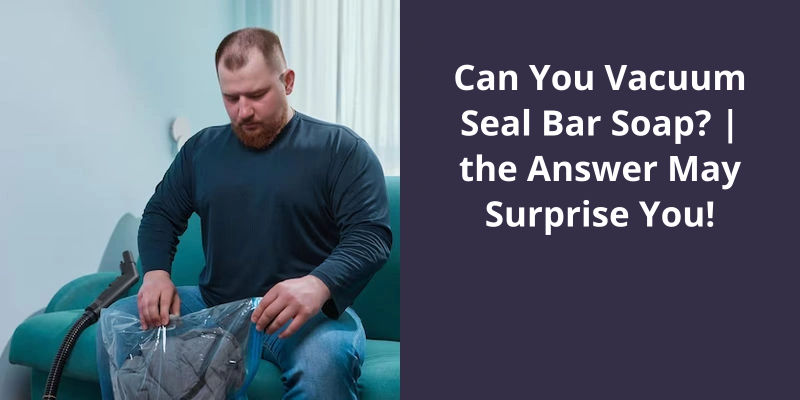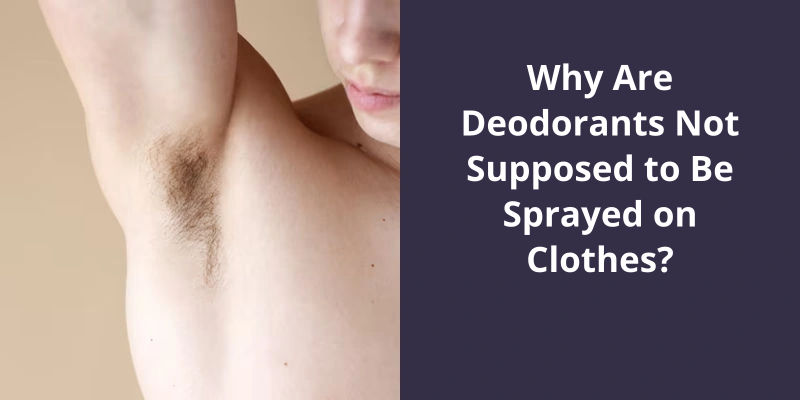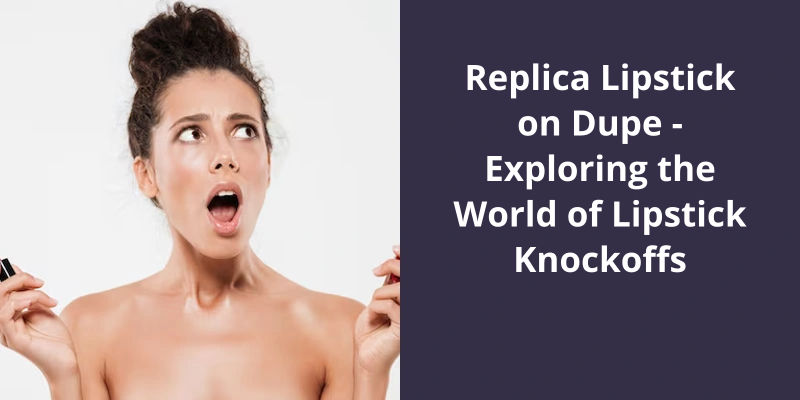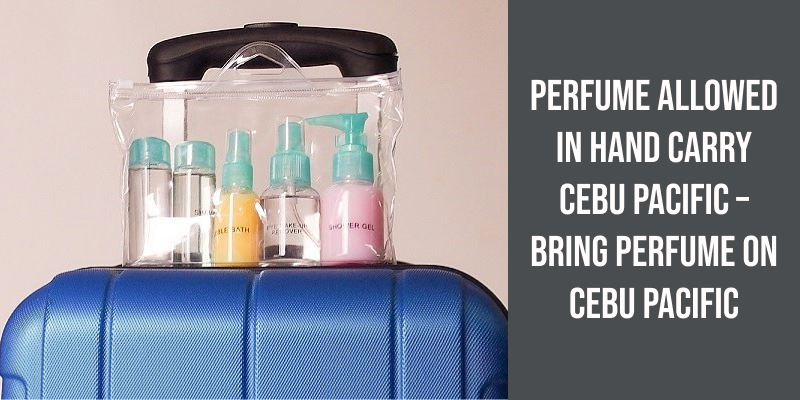Bar soap is a household staple that’s been used for centuries to keep our hands, bodies, and clothes clean. In recent years, vacuum sealing has become a popular method of preserving food, but can it also be used to seal bar soap? The short answer is yes, but the process requires some careful planning and attention to detail. However, it’s important to choose the right type of soap, packaging material, and vacuum sealer to ensure that your soap remains fresh and effective for as long as possible.

How Do You Preserve Bar Soap?
Bar soap has been a go-to for many people when it comes to cleaning their body. But, how do you preserve bar soap? It’s an important question, and there are a few things you can do to keep it hygienic and ensure it lasts longer. First, it’s important to keep it as dry as possible between uses. This can be achieved by storing it in a way that allows for proper airflow to help dry out the soap. Wrapping it in a towel or leaving it in a humid environment can accelerate the breakdown of the soap.
This means keeping it on a shelf or in a soap dish that doesn’t allow water to accumulate underneath the soap. As a general rule, you should avoid storing your soap in areas that are prone to getting wet, such as the edge of the shower or the rim of the tub.
Using a soap dish with holes is also an ultimate way to save the life of your soap. The holes allow any water that may have accumulated on the soap to drain away, preventing the soap from becoming too soft or breaking down.
Lastly, it’s important to rinse the surface of your soap before use and after use. This may seem like a small step, but it can make a significant difference in the life of your soap.
So next time you’re looking for ways to keep your soap from getting bacteria, try allowing it to dry thoroughly between washes. Consider using a soap saver or taking your bar soap out of the shower if you share with others. And speaking of bar soap, did you know that the popular Palmolive brand got it’s start with just one product, Palmolive bar soap, made of coconut, palm, and olive oils and introduced in 1898?
How Do You Keep Soap From Getting Bacteria?
Keeping your soap dry is essential to prevent bacteria growth. One way to achieve this is to select a soap saver that allows the soap to drain and dry between uses. Soap savers come in various designs and materials, so choose one that fits your preference and budget.
Additionally, it’s best to store your soaps in a cool, dry place away from direct sunlight and heat. Exposure to moisture, humidity, and high temperatures can cause your soap to melt, making it an ideal environment for bacteria. If you’ve multiple bars of soap, rotate them to ensure they’ve enough time to dry thoroughly before the next use.
Another tip to maintain the cleanliness of your soap is to avoid sharing it with others. Each persons skins microbial flora is unique, and sharing soap can spread bacteria and other microorganisms from one person to another.
It’s worth noting that not all soaps are created equal. Some brands, like Palmolive, are known for producing high-quality soaps that are less likely to harbor bacteria. Palmolive bars contain coconut, palm, and olive oils, which help moisturize the skin while providing antibacterial properties.
Alternatives to Bar Soap, Such as Liquid Soap or Body Wash
Many people prefer liquid soap or body wash over bar soap because they feel it’s more hygienic and less messy. Liquid soap and body wash also come in a wide variety of scents and formulas to suit different skin types and preferences. Additionally, they tend to last longer than bar soap as they can be used with a dispenser or pump.
While bar soap has been a common household product for many years, it’s level of hygiene has often been questioned. With the current pandemic, the need for cleanliness and hygiene has become more important than ever before. This article explores the science behind whether bacteria can live on bar soap and what measures can be taken to ensure that it remains clean and safe to use.
Can Bacteria Live on Bar Soap?
When considering the potential for bacterial growth on bar soap, it’s important to understand that not all types of bacteria pose a risk to human health. However, certain harmful pathogens can easily thrive and multiply on this seemingly innocuous item. In fact, studies have shown that bar soap can become a breeding ground for some of these microorganisms, particularly in humid and warm environments.
One common misconception is that the lathering action of soap is enough to rinse away bacteria. However, this isn’t always true. In fact, studies have found that bacteria can remain on bar soap even after prolonged washing, potentially leading to the transmission of germs. It’s thought that people may become contaminated with bacteria from soap when using it for personal hygiene purposes, such as washing their hands or face.
One of the most important is to regularly replace bar soap with a new one, and to avoid using a shared bar soap in public places. Additionally, keeping the bar soap dry between uses can help to slow down bacterial growth. Experts also advise using liquid soap instead of bar soap whenever possible, which is less likely to become contaminated with bacteria due to it’s packaging and dispensing methods.
By following simple preventative measures, such as replacing bar soap regularly and using liquid soap when possible, it’s possible to protect oneself against the potential risks associated with bacterial growth on this common household item.
The Environmental Impact of Liquid Soap Versus Bar Soap in Terms of Waste and Packaging.
This article examines the environmental consequences of using liquid soap versus bar soap, with a focus on the amount of packaging waste involved in each option.
Source: The Shocking Truth About Bar Soap And Germs
While bar soaps are a cost-effective and eco-friendly option for cleaning your skin, it’s important to know how to take care of them properly to ensure they last as long as possible. One common question people ask is whether or not they can store bar soap in a ziplock bag. However, the answer may surprise you. Let’s take a closer look at why storing bar soap in an airtight container like a ziplock bag can actually do more harm than good.
Can You Store Bar Soap in Ziplock?
Bar soap is a versatile cleaning product that can be used for many purposes, from washing hands and faces to cleaning dishes and laundry. However, it’s important to store bar soap properly to ensure that it stays fresh and effective for as long as possible. The short answer is no.
There are a few reasons why storing bar soap in a ziplock plastic bag isn’t a good idea. First, bar soap needs to be able to breathe. If it’s tightly sealed in an airtight container, it’s more likely to accumulate moisture and bacteria. This can cause the soap to become less effective and even develop an off smell. Second, plastic bags can create a moist environment that’s ideal for bacteria to grow.
A soap dish with drainage holes is ideal for this purpose. This will allow air to circulate around the soap and prevent it from getting too wet or soft. If you need to take bar soap with you on the go, consider using a mesh or fabric bag instead of a plastic bag. These materials will allow the soap to breathe and dry out between uses.
It’s also important to keep bar soap away from other strong-smelling products, such as perfumes or cleaning chemicals.
If you’re someone who likes to stock up on bar soap, you may be wondering what to do with those expired bars. While it may be tempting to throw them out, it’s good to know that expired soap can still be usable. While it may not smell as good, there are still ways to make the most out of your expired bars. Let’s take a closer look at what you can do with old soap.
Is It OK to Use Expired Bar Soap?
First, it’s important to understand that soap doesn’t necessarily have an expiration date like perishable foods do. Over time, the oils and other ingredients in soap can begin to break down and lose their effectiveness. When this happens, the soap may become less effective at cleaning and moisturizing your skin.
Despite this, most bar soaps are still safe to use even if they’re past their expiration date. The main thing to keep in mind is that the soap may not be as effective at cleaning and moisturizing your skin as it was when it was new. You might also notice that it doesn’t lather as well, and the scent may not be as strong as it once was.
If the soap looks and smells fine, it’s probably still safe to use. However, if the soap has started to crumble, or it smells rancid, it’s best to throw it away.
Another thing to consider is the type of soap youre using. Some soaps are more prone to going bad than others. For example, natural, organic soaps made with ingredients like coconut oil and goats milk tend to have a shorter shelf life than mass-produced soaps that contain preservatives.
Finally, keep in mind that using expired soap isnt necessarily just a matter of personal preference. If you’ve sensitive skin or allergies, using old soap could lead to skin irritation or other issues. On the other hand, if you’ve tough, oily skin, you may not notice much of a difference either way.
Bar soap doesn’t necessarily go bad like other perishable goods, but it can lose it’s effectiveness over time. However, if you’ve sensitive skin or allergies, it’s best to err on the side of caution and replace your soap regularly.
Conclusion
The process of vacuum sealing removes excess air and moisture from the packaging, which prevents the soap from deteriorating, drying out, and becoming less effective. Although it may seem unconventional to vacuum seal bar soap, it’s an effective way to keep them in pristine condition.





